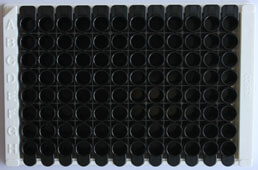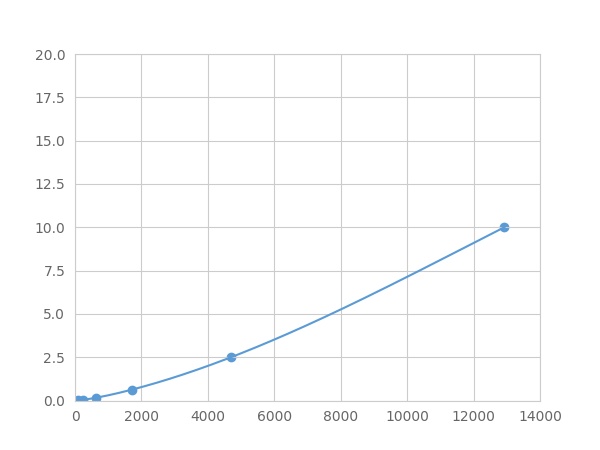Packages (Simulation)

Reagent Preparation

Image (I)
Image (II)
Certificate


Multiplex Assay Kit for Apolipoprotein B (APOB) ,etc. by FLIA (Flow Luminescence Immunoassay)
Apo-B; FLDB; Apo B-100; Apo B-48
(Note: Up to 8-plex in one testing reaction)
- Product No.LMC003Hu
- Organism SpeciesHomo sapiens (Human) Same name, Different species.
- Sample Typeserum, plasma, tissue homogenates, cell lysates, cell culture supernates and other biological fluids
- Test MethodDouble-antibody Sandwich
- Assay Length3.5h
- Detection Range0.01-10ug/mL
- SensitivityThe minimum detectable dose of this kit is typically less than 0.003 ug/mL.
- DownloadInstruction Manual
- UOM 8Plex 7Plex 6Plex 5Plex 4Plex 3Plex 2Plex1Plex
- FOB
US$ 349
US$ 363
US$ 383
US$ 410
US$ 437
US$ 477
US$ 538
US$ 672
Add to Price Calculator
Result
For more details, please contact local distributors!
Specificity
This assay has high sensitivity and excellent specificity for detection of Apolipoprotein B (APOB) ,etc. by FLIA (Flow Luminescence Immunoassay).
No significant cross-reactivity or interference between Apolipoprotein B (APOB) ,etc. by FLIA (Flow Luminescence Immunoassay) and analogues was observed.
Recovery
Matrices listed below were spiked with certain level of recombinant Apolipoprotein B (APOB) ,etc. by FLIA (Flow Luminescence Immunoassay) and the recovery rates were calculated by comparing the measured value to the expected amount of Apolipoprotein B (APOB) ,etc. by FLIA (Flow Luminescence Immunoassay) in samples.
| Matrix | Recovery range (%) | Average(%) |
| serum(n=5) | 78-97 | 87 |
| EDTA plasma(n=5) | 82-104 | 101 |
| heparin plasma(n=5) | 96-103 | 101 |
Precision
Intra-assay Precision (Precision within an assay): 3 samples with low, middle and high level Apolipoprotein B (APOB) ,etc. by FLIA (Flow Luminescence Immunoassay) were tested 20 times on one plate, respectively.
Inter-assay Precision (Precision between assays): 3 samples with low, middle and high level Apolipoprotein B (APOB) ,etc. by FLIA (Flow Luminescence Immunoassay) were tested on 3 different plates, 8 replicates in each plate.
CV(%) = SD/meanX100
Intra-Assay: CV<10%
Inter-Assay: CV<12%
Linearity
The linearity of the kit was assayed by testing samples spiked with appropriate concentration of Apolipoprotein B (APOB) ,etc. by FLIA (Flow Luminescence Immunoassay) and their serial dilutions. The results were demonstrated by the percentage of calculated concentration to the expected.
| Sample | 1:2 | 1:4 | 1:8 | 1:16 |
| serum(n=5) | 94-102% | 85-98% | 80-94% | 98-105% |
| EDTA plasma(n=5) | 97-105% | 84-101% | 92-99% | 79-103% |
| heparin plasma(n=5) | 92-102% | 95-102% | 90-104% | 78-91% |
Stability
The stability of kit is determined by the loss rate of activity. The loss rate of this kit is less than 5% within the expiration date under appropriate storage condition.
To minimize extra influence on the performance, operation procedures and lab conditions, especially room temperature, air humidity, incubator temperature should be strictly controlled. It is also strongly suggested that the whole assay is performed by the same operator from the beginning to the end.
Reagents and materials provided
| Reagents | Quantity | Reagents | Quantity |
| 96-well plate | 1 | Plate sealer for 96 wells | 4 |
| Pre-Mixed Standard | 2 | Standard Diluent | 1×20mL |
| Pre-Mixed Magnetic beads (22#:APOB) | 1 | Analysis buffer | 1×20mL |
| Pre-Mixed Detection Reagent A | 1×120μL | Assay Diluent A | 1×12mL |
| Detection Reagent B (PE-SA) | 1×120μL | Assay Diluent B | 1×12mL |
| Sheath Fluid | 1×10mL | Wash Buffer (30 × concentrate) | 1×20mL |
| Instruction manual | 1 |
Assay procedure summary
1. Preparation of standards, reagents and samples before the experiment;
2. Add 100μL standard or sample to each well,
add 10μL magnetic beads, and incubate 90min at 37°C on shaker;
3. Remove liquid on magnetic frame, add 100μL prepared Detection Reagent A. Incubate 60min at 37°C on shaker;
4. Wash plate on magnetic frame for three times;
5. Add 100μL prepared Detection Reagent B, and incubate 30 min at 37°C on shaker;
6. Wash plate on magnetic frame for three times;
7. Add 100μL sheath solution, swirl for 2 minutes, read on the machine.
GIVEAWAYS
INCREMENT SERVICES
| Magazine | Citations |
| Journal of Lipid Research | Group 1B phospholipase A2 deficiency protects against diet-induced hyperlipidemia in mice Jlr: M019463 |
| J Clin Endocrinol Metab.? | Elevated retinol binding protein 4 induces apolipoprotein B production and associates with hypertriglyceridemia Pubmed:25781360 |
| Biochim Biophys Acta | Culturing of HepG2 cells with human serum improve their functionality and suitability in studies of lipid metabolism PubMed: 26515253 |
| Am J Cardiovasc Dis | Hypoascorbemia induces atherosclerosis and vascular deposition of lipoprotein (a) in transgenic mice PubMed: 26064792 |
| The Journal of Biological Chemistry | Proprotein convertase subtilisin/Kexin type 9 (PCSK9) single domain antibodies are potent inhibitors of LDL receptor degradation Pubmed:27284008 |
| United States Patent Application | COMPOSITIONS AND METHODS FOR EFFICACIOUS AND SAFE DELIVERY OF SIRNA USING SPECIFIC CHITOSAN-BASED NANOCOMPLEXES y2016:0152988.html |
| alcohol and alcoholism | Hops (Humulus lupulus) Content in Beer Modulates Effects of Beer on the Liver After Acute Ingestion in Female Mice. pubmed:27659607 |
| Frontiers in Physiology | Change in the Lipid Transport Capacity of the Liver and Blood during Reproduction in Rats pubmed:28798692 |
| Food Research International | Wild Lonicera caerulea berry polyphenol extract reduces cholesterol accumulation and enhances antioxidant capacity in vitro and in vivo Pubmed:29580541 |
| Journal of The Science of Food and Agriculture | Consumption of orange fermented beverage improves antioxidant status and reduces peroxidation lipid and inflammatory markers in healthy humans Pubmed:29124773 |
| European Journal of Pharmacology | The effect of exenatide (a GLP-1 analog) and sitagliptin (a DPP-4 inhibitor) on plasma platelet-activating factor acetylhydrolase (PAF-AH) activity and concentration in?… Pubmed: 30768981 |
| Nature Communications | Hepatic HuR modulates lipid homeostasis in response to high-fat diet Pubmed: 32546794 |
| Study of in Vivo Serum Lipid Regulation with Ulmus macrocarpa Hance Extract in Rats | |
| Nat Commun | GP73 is a TBC-domain Rab GTPase-activating protein contributing to the pathogenesis of non-alcoholic fatty liver disease without obesity 34853313 |





